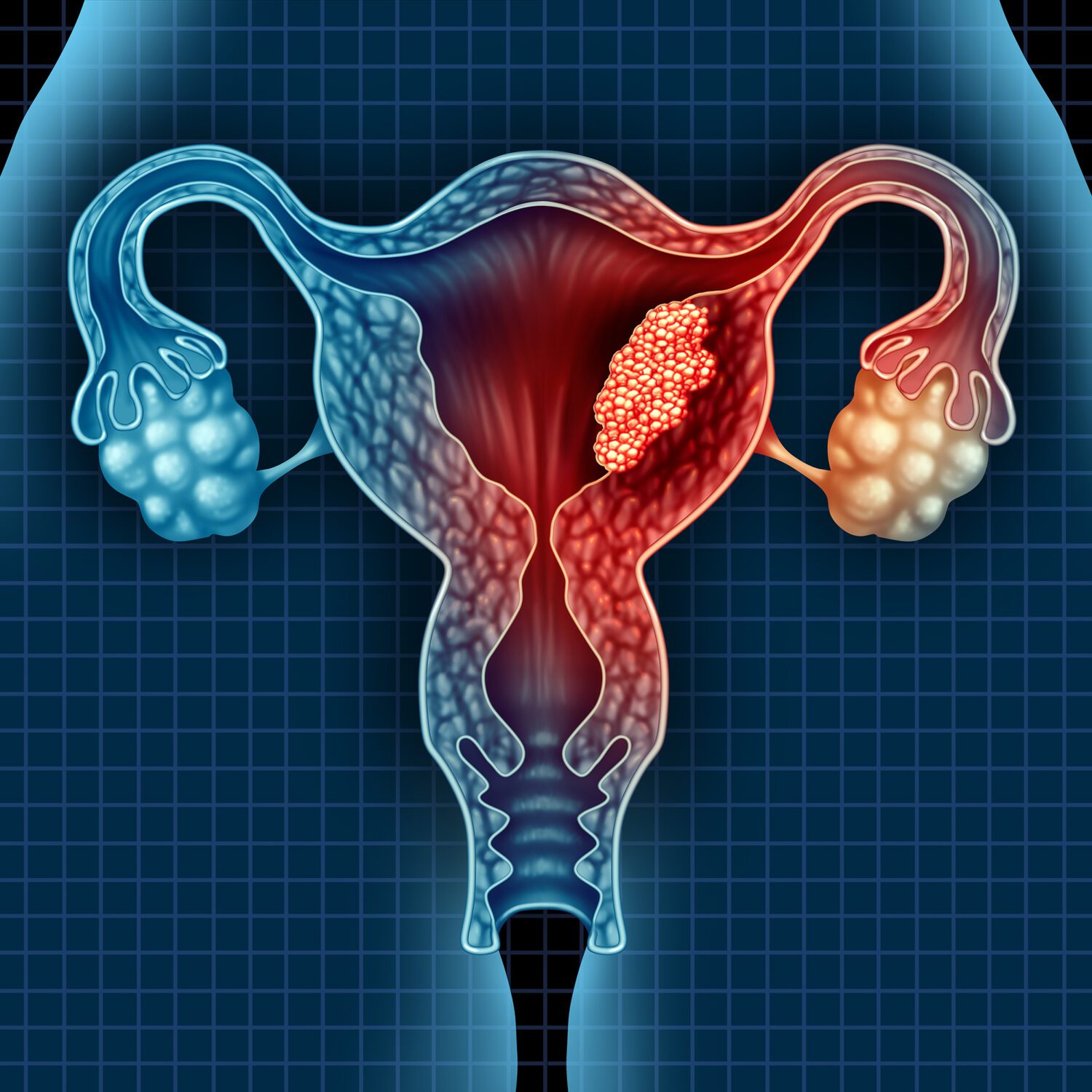What is Endometrial Cancer?
Co-Authored by: Ragan Spinks, NP, Duke Cancer Network; Linda Sutton, MD, Duke Cancer Network, Medical Director; Conway Medical Center
Endometrial cancer is a type of cancer that originates in the lining of the uterus (womb). It is the most common form of cancer that occurs in the female reproductive system and is on the rise in the United States. In 1987, there were 35,000 cases annually. In 2023, that number has nearly doubled to more than 66,000 cases.
Deaths from the disease have also grown alarmingly during this period, from less than 3,000 to more than 13,000 every year. Endometrial cancer has been increasing at unprecedented levels and is primarily affecting postmenopausal women, although it can also occur in younger women. Because the trend line is not getting better, CMC Cancer Care and the Duke Cancer Network want you to have a better understanding of the risk factors, symptoms, diagnosis, and treatment options for endometrial cancer because these are crucial for early detection and effective management.
Understanding the Uterus and Endometrium
Think about the uterus for a moment – a remarkable organ that is the cradle for all of humanity. Every one of us owes our existence to this small pear-shaped muscular organ that lies within the pelvis of the female body. The uterus also has an amazing capacity to grow with a pregnancy and shrink back to near-original size after a pregnancy.
The 3 layers of the uterus are the outer layer, a middle muscular layer called the ‘myometrium’, and an inner layer called the ‘endometrium’. The endometrium refreshes regularly in cycles controlled by the hormones estrogen and progesterone. Estrogen causes growth and thickening of the endometrium in preparation for a pregnancy. If a pregnancy does not occur, progesterone causes the release of the thickened lining periodically in a process known as menstruation.
What is Endometrial Cancer?
The marvelous capacity of the endometrium to grow and be in a near-constant state of readiness for pregnancy is also the source of potential trouble. Nearly 90% of cancers of the uterus begin in the endometrium. Endometrial cancers can range from slow-growing cancers that are highly curable when detected early to more aggressive cancers with rapid growth that threaten the lives of women. Uterine cancer is one of the few cancers in the US that is causing more deaths among those diagnosed in recent years. It is the 4th most common cancer in US women. The American Cancer Society estimates that 67, 880 women in the US will be diagnosed with uterine cancer in 2024. About 13,250 women will die from this cancer.

Endometrial cancer can occur in adult women at any age, but more often affects women after menopause, typically 60 years of age or older. Before menopause, the ovaries produce estrogen and progesterone that control the growth and shedding of the endometrium. Whenever human cells grow, some errors are made in the new cells. These errors or mutations allow some cells to overcome the normal mechanisms in place that limit cell growth. The regular shedding of the endometrium prevents abnormal cells from remaining in the endometrium. After menopause, the ovaries stop producing estrogen and progesterone, but other tissues in the body, like fat tissue, continue to release small amounts of estrogen alone. Estrogen without progesterone causes progressive thickening of the endometrium, increasing the risk of abnormal tissue growth and cancer development. Increasing estrogen in the body promotes tissue growth of the endometrium. Obesity as well as the use of estrogen-only medications for control of menopausal symptoms increase estrogen levels.
Screening for Endometrial Cancer
There are currently no screening tests for endometrial cancers. The common screening test for cervical cancer, the PAP smear, does not reliably detect endometrial cancer even though the cervix lies at the far end of the uterus. As a result, symptoms are often the earliest warning of endometrial cancer.
Warning symptoms include:
- Abnormal vaginal bleeding or discharge not related to your periods
- Lower abdomen/ pelvic pain
- Painful or difficult urination
- Pain during intercourse
- Weight loss
Any amount of bleeding that happens outside of the regular menstrual cycle is abnormal, particularly if this occurs repeatedly. Bleeding after menopause is never normal. There are many potential causes of these symptoms but prompt evaluation by your women’s health provider is important to eliminate cancer as a potential cause.
Endometrial Cancer Risk Factors
There are additional factors that increase the chance of developing endometrial cancer. These include a family history, inheritance of genetic mutations that make the development of uterine cancer more likely, underlying medical conditions such as polycystic ovarian syndrome, or never having had a pregnancy. There are specific genetic mutations that increase the likelihood of other cancers in addition to endometrial cancer such as Lynch or Cowden syndromes. Careful consideration and discussion with your provider are encouraged in order to assess your risks.
Fortunately, women can lower the risk of developing endometrial cancer. Lifestyle choices such as regular exercise, maintaining a healthy weight, and eating a balanced diet can help to avoid obesity and other medical conditions that promote overgrowth of the uterine lining and appear to be important options to decrease endometrial cancer risk.
CMC Women’s Health is Here for You
Endometrial cancer is a serious health concern that requires attention and awareness. About 75% of patients diagnosed with endometrial cancer are already in menopause. However, the disease is increasing in younger populations by about one or two percentage points per year. By understanding the risk factors, recognizing the signs and symptoms, and seeking timely medical evaluation, you can take proactive steps to safeguard your health and well-being.
CMC Cancer Center stresses that early detection and intervention are crucial for improving the outcomes for those diagnosed with endometrial cancer, highlighting the importance of regular health screenings and open communication with your healthcare providers. If you have concerns about your cycle, or if you think you’re experiencing abnormal bleeding or any other symptom of endometrial cancer, talk to your gynecologist. Bleeding after menopause is not normal and needs to be addressed with your women’s health provider.
If you do not have a gynecologist, the providers at CMC Women’s Health are here to help you stay on top of all your screenings and discuss any symptoms you may be experiencing.




